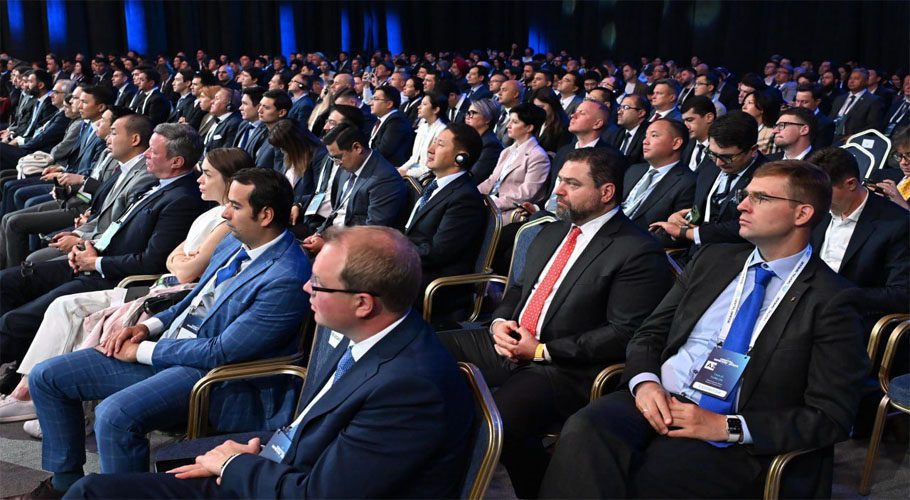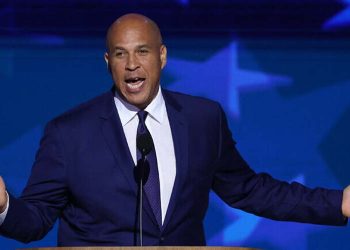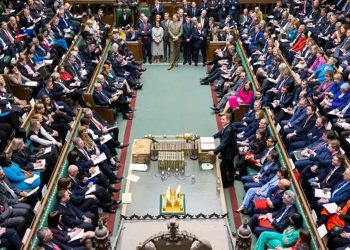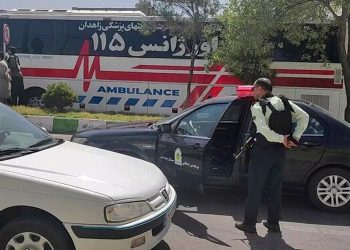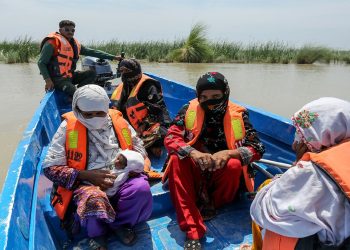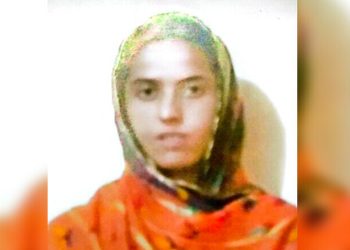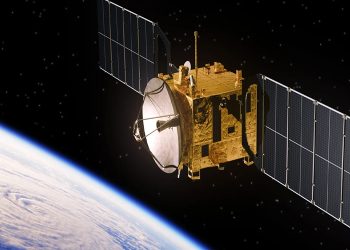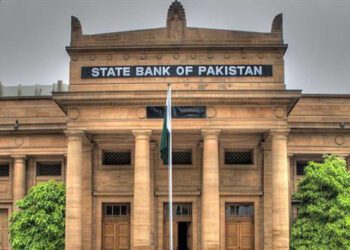Astana (Kazakhstan) President Kassym-Jomart Tokayev’s speaking at the Plenary Session of “Digital Bridge 2023” at Astana International Expo Center on Thursday, October 12, 2023.
Over twenty thousand participants from Kazakhstan, neighboring countries, and companies from the digitally developed world took a keen interest in the two-day Digital Bridge 2023. The internal forum was organized by the Astana Hub and Kazakh Ministry of Digital and Space Technology here at the Astana (Kazakhstan) International Expo Centre on 12-13 October.
The forum focused on the importance of “Artificial and Human Intelligence: The Right Balance” with the participation of remarkable personalities from different countries, founders and top managers of technology giants, entrepreneurial startup founders, scientists, and students, striving to make the world a better place unitedly through dialogue and to inspire each other.
Over 250 speakers more than 300 startups and 100 plus venture capital investors from fifteen countries made the forum an unprecedented success. The leading Information Technology (IT) and Artificial Intelligence (AI) industry experts featured the Digital Bridge 2023 included the Venture Investor and co-founder of The Draper Fisher Jurvetson, and founder of the Draper University Тim Draper, the ICPC (International Collegiate Programming Contest) President Bill Poucher, Director of Barrat Media and an author James Barrat, TikTok CEO Shou Chew, film director, producer, screenwriter and tech entrepreneur Timur Bekmambetov, CEO and the co-founder kaspi.kz Mikhail Lomtadze, Freedom Holding Corporation CEO Timur Turlov, chairman of the board of Halyk Bank Umut Shayakhmetova, Meta Security Engineer Renato Lima, Kazakhstan minister of digital development, innovation, and aerospace industry Bagdat Mussin, founder of the Youtube project billions Ernest Umetaliev, managing partner Quest Ventures James Tan, the Microsoft vice president of global market development, worldwide public sector Antonio de Palmas, the Kazakhtelecom chairman of the board Kuanyshbek Esekeyev, venture partner Big Sky Capitals Julie Davila, the Draper University president Asra Nadeem, Kazpost JSC chairman of the board Assel Zhanassova, the Draper Associates partner Andrew Tang,
Kazakhstan President Kassym-Jomart Tokayev inaugurated the Digital Bridge 2023 with his futuristic approach to make his country a digital hub in the true sense for the Central Asia region in particular.
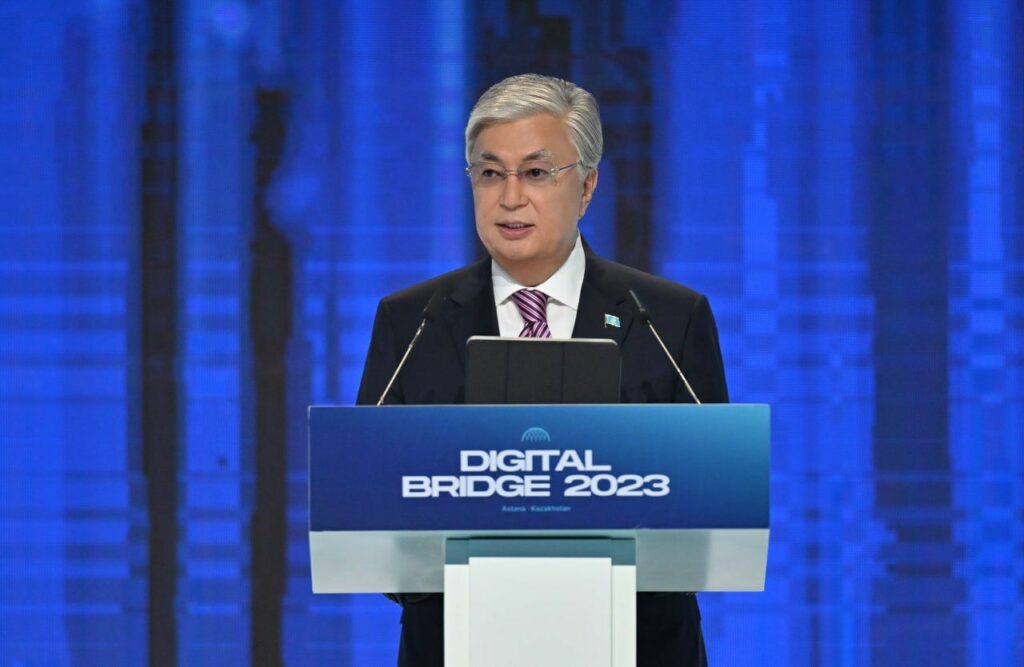
In his speech, Kassym-Jomart Tokayev highlighted the significant growth of the Digital Bridge Forum over the last five years. It has evolved into the largest platform in Central Asia for discussing the latest trends and prospects in the IT industry. This year, the forum brought together over 20,000 participants, including representatives from more than 300 IT companies and delegations from 30 countries. This strong turnout demonstrates Kazakhstan’s leading position as a digital and fintech hub in Eurasia. According to the President, the forum’s theme is particularly relevant.
Artificial intelligence is no longer science fiction but a reality. A new era is starting right before our eyes. This revolutionary technology holds transformative power comparable to the impact of electricity and the Internet in their respective epochs. It has the potential to reshape lifestyles, automate work processes, and generate substantial economic value. Experts project that artificial intelligence could contribute an economic influence equivalent to a quarter of the global GDP, making its widespread adoption a pivotal catalyst for Kazakhstan’s progressive development, said the Kazakh President.
In his view, it is imperative to create all the necessary conditions for the rapid development of artificial intelligence. Addressing the forum’s participants, Kassym-Jomart Tokayev outlined the key priorities in this direction.,
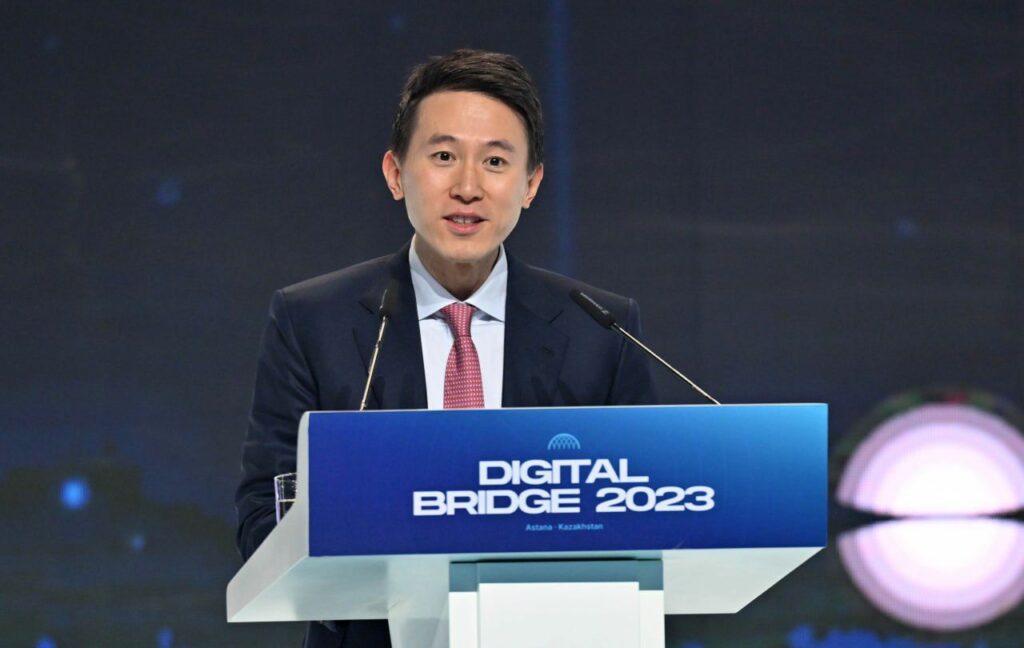
He said, “We must adopt a document regulating the use of AI to establish a sustainable path for our country’s technological progress. Our initial focus should be on introducing AI technologies into sectors crucial to our economy, such as the oil and gas industry, energy, agriculture, transport, and logistics. AI can significantly optimize the transformation of our cities into fully-fledged smart cities, conducive to comfortable living and work. The widespread use of AI in public services is also of great importance. We’ve already achieved significant results, including the launch of the Digital Family Card, which assesses citizens’ social well-being and provides government support. A similar product should be introduced for businesses by Baiterek Holding, which, under my instructions, has already embarked on a large-scale digital transformation.
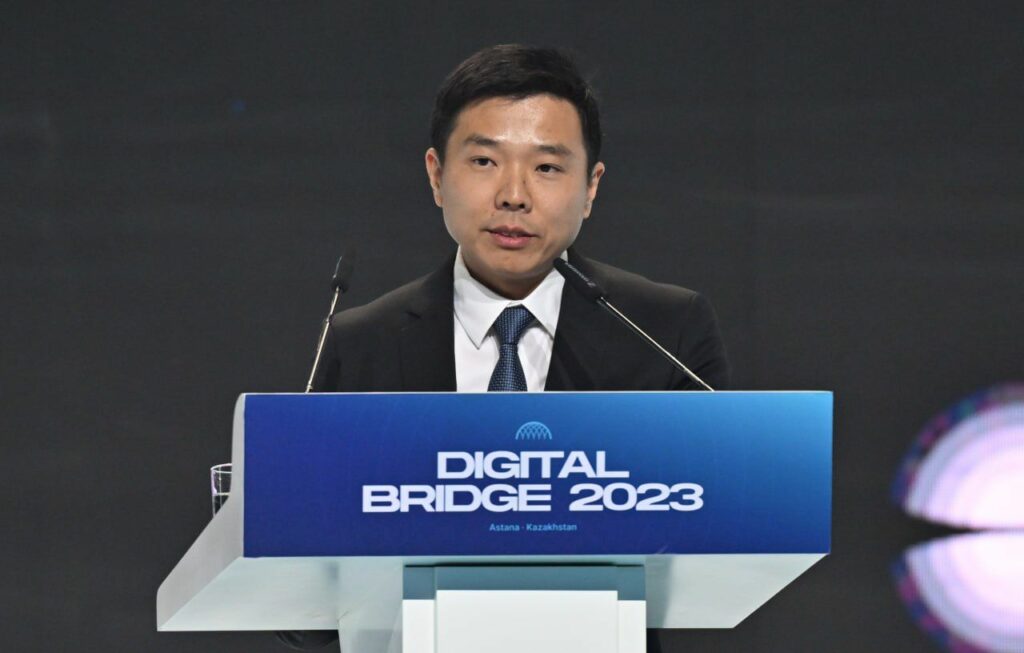
The President identified the second priority as the need for AI regulation. He mentioned that more than 120 countries have already enacted various legislative measures to address this issue. “We should expedite the development of legislation that aligns with the best global practices, taking into account both market needs and citizens’ interests. The legal framework should encourage international companies to enter our market. Achieving a balance of interests and establishing open and fair rules of engagement is essential. The ultimate goal is to integrate AI into people’s daily lives without infringing on their rights and freedoms. I hope that forum participants will contribute to the development of foundational documents in this area, including the draft Digital Code,” the President emphasized.
He stressed the importance of continuously enhancing digital infrastructure, asserting that advanced IT infrastructure is the cornerstone for the future progress of the digital industry, particularly in AI. “The development of IT infrastructure should precede the requirements of IT developers. We must enhance our computing power, and I instruct the Government to ensure the construction of data centers specializing in AI within two years. To achieve this, we can involve global players such as Amazon, Google, Mastercard, and Citigroup, with whom I’ve already held discussions during my recent trip to New York.”
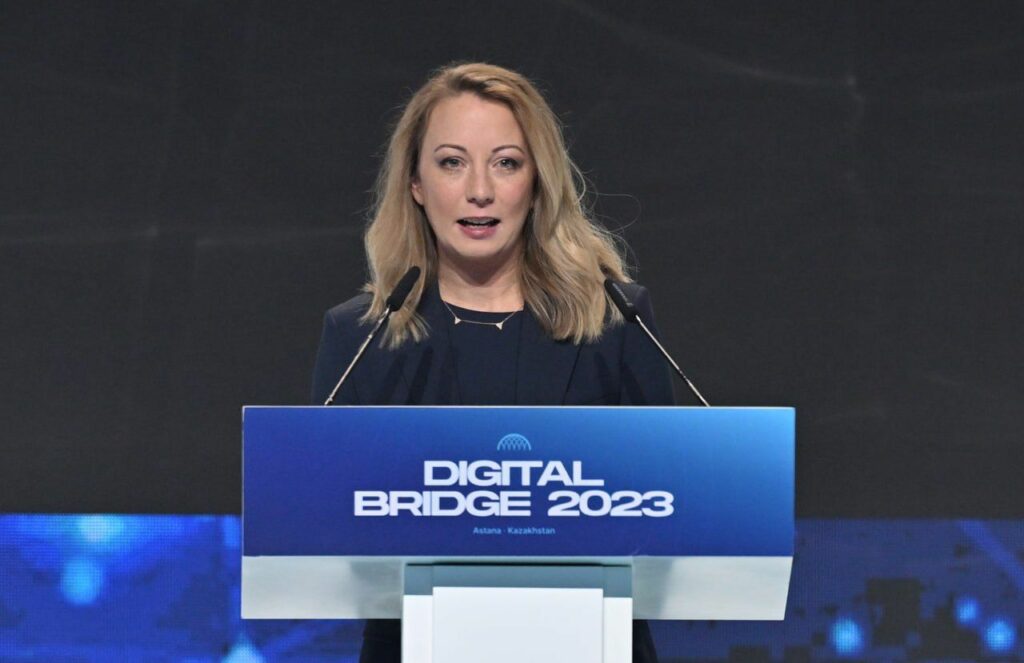
Additionally, the President called for the development of a data ecosystem for AI, emphasizing that big data serves as the “fuel” for artificial intelligence. “Various solutions to big data have already been implemented in Kazakhstan. However, their potential remains largely untapped due to limited access to government data. It is crucial to ensure free access to anonymized data through Smart Data Ukimet. All information must be anonymized and securely protected to prevent any risks of personal data breaches. The National Artificial Intelligence Platform is set to launch next year, which will aggregate data from the government and large businesses, ensuring their relevance and accessibility. These measures will enable our startups, using AI elements, to create entirely new IT solutions demanded both in Kazakhstan and worldwide.”
Kassym-Jomart Tokayev announced upcoming reforms of the Bureau of National Statistics to transform it into a digital agency. “Comprehensive measures need to be taken for data organization, including the development of management policies and the establishment of a target data architecture. This will be a fundamental requirement for the state to make effective decisions.”
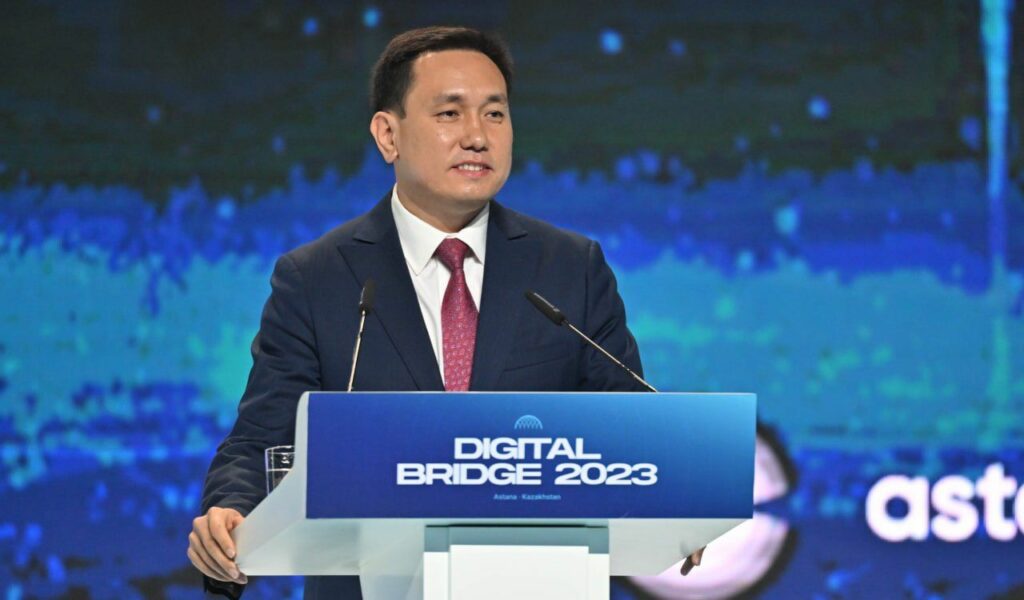
Another vital driver for innovation is the full deployment of the 5G network. “We initially aimed to cover all regional centers with next-generation cellular communications by 2027. However, given the rapid pace of technological development, we must expedite this process, with the government completing it before the end of 2025. The change in the timeline should not compromise service quality. Furthermore, providing internet access to residents in remote areas via low-orbit satellite systems should be carefully considered, with potential adjustments to the legislation if required.”
Adapting the education system to meet the future labor market’s needs is another priority area. The President believes that automation and AI will significantly transform the global workforce structure, requiring entirely different skills. Therefore, new competencies need to be developed from an early age. To address the shortage of qualified teachers, Kassym-Jomart Tokayev proposed launching an online platform for schoolchildren and students to learn coding.
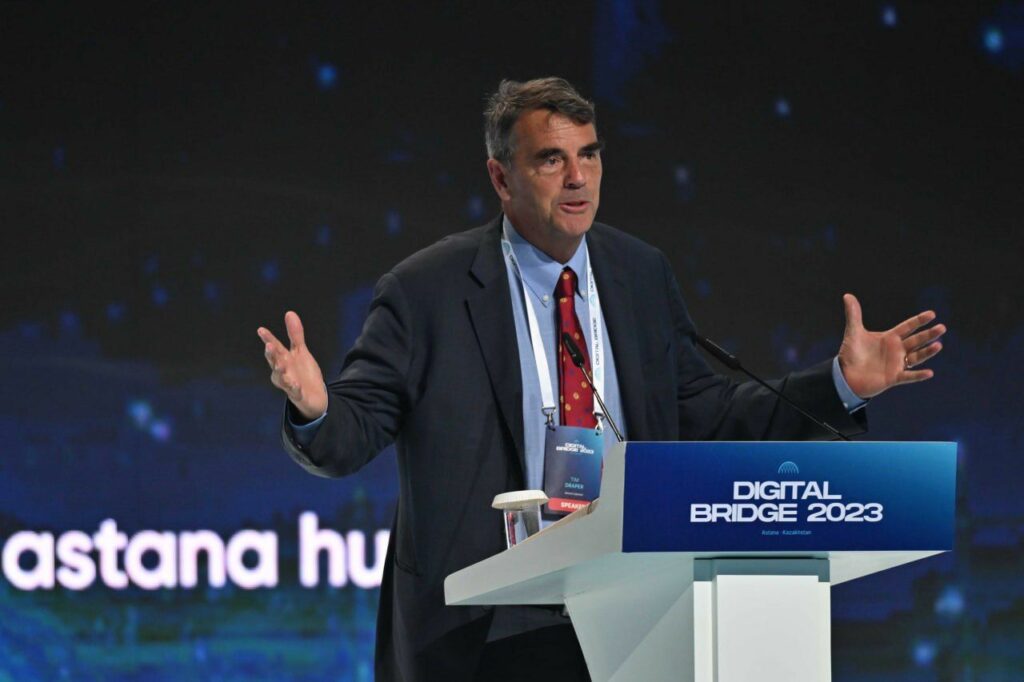
“It is essential to update the content and teaching methods for university subjects. Future professionals in fields like teaching, medicine, agriculture, law, and industry must have a fundamental understanding of artificial intelligence. Additionally, the Institute of Smart Systems and Artificial Intelligence at Nazarbayev University should transform into a full-fledged research institute, forming an integrated ecosystem in close collaboration with global and domestic IT industry leaders. The institute’s developments must be commercialized and scaled effectively.”
He also stressed the need to develop the venture capital market as a crucial catalyst for innovation and technological progress, saying: “We should attract international players to our venture market, leveraging their expertise and project quality assessment. Domestic institutional investors, including Baiterek Holding, could become key partners. Various financial institutions, such as second-tier banks, insurance companies, and microfinance organizations, should also participate in venture funds.”
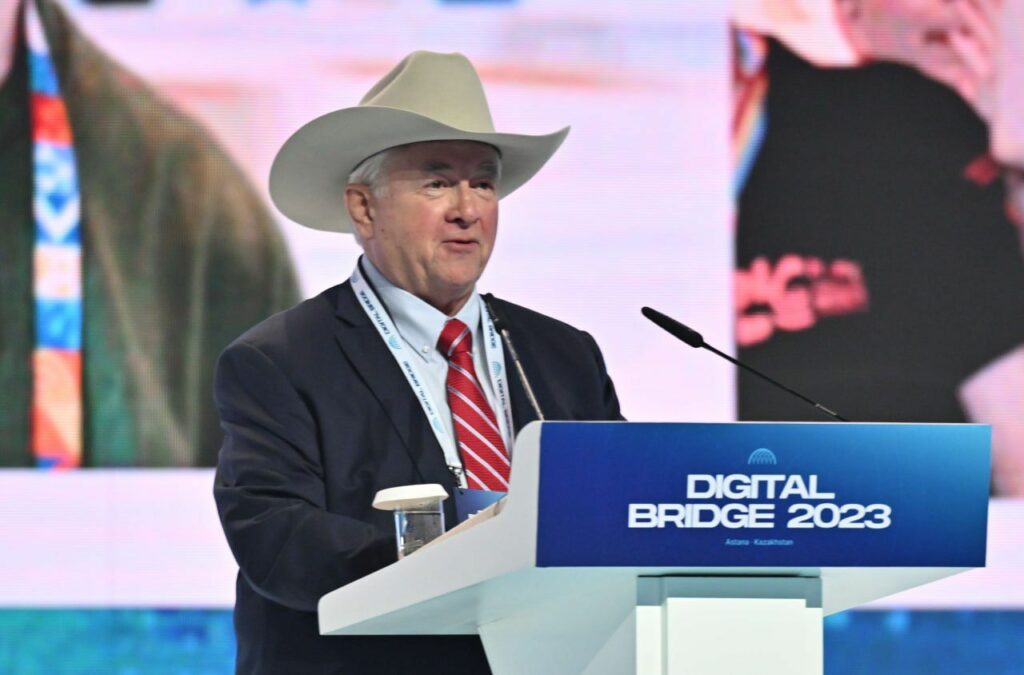
The ICPC (International Collegiate Programming Contest) President Bill Poucher
Kassym-Jomart Tokayev underscored that the use of artificial intelligence opens up new opportunities for inclusive and sustainable development. Global competition in this field is intensifying. “Kazakhstan should actively engage in these trends by combining the efforts of domestic IT specialists, experts, and scientists, and collaborating with international partners. Furthermore, we must address the potential risks associated with AI surpassing human intelligence in the coming decades. The implications, whether they lead to humanity’s prosperity or its potential demise, are still debated in scientific circles. Hence, controlling artificial intelligence becomes of paramount importance, similar to the need for a new paradigm of global security that emerged with the advent of nuclear energy and atomic weapons. Striking a balance between technological progress and collective security is essential.”
The leader of Kazakhstan also discussed the deep modernization of the political system and the transition to an economy based on knowledge and new technologies. In Kazakhstan, every citizen will have opportunities for full self-realization. We’re working to enhance people’s welfare and create a welcoming environment for digital nomads, particularly IT specialists. We’re promoting innovative entrepreneurship and the creative industry. I believe that the global technological revolution can contribute to the progress of all nations, fostering a more balanced and equitable world. I am confident that this forum will serve as an effective platform for discussing these pressing issues and act as a launching pad for promising projects, Kassym-Jomart Tokayev concluded.







